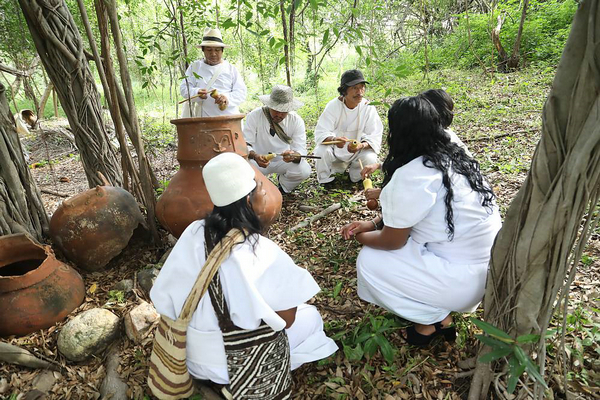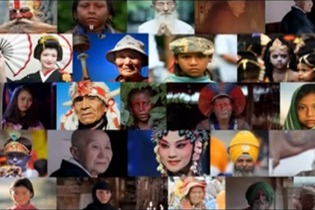UNESCO launches the International Decade of Indigenous Languages

UNESCO, in co-operation with the United Nations Department for Economic and Social Affairs (UNDESA), the Office of the United Nations High Commissioner for Human Rights (OHCHR), and the members of Global Task Force for Making a Decade of Action for Indigenous Languages, will organize and host a High-level Celebration on 13 December 2022 from 10am to 6.30pm at UNESCO Headquarters in Paris, France. For the occasion, discover how living heritage and indigenous languages are connected.
Indigenous peoples hold a rich diversity of living heritage, including practices, representations, expressions, knowledge and skills that continue to be relevant for some of the most pressing issues facing our world today. Many intangible cultural heritage (ICH) elements inscribed on the Lists are connected to indigenous communities. The 2003 Convention provides an important tool for indigenous peoples to shape international heritage discourse and ensure that their experiences and needs in safeguarding living heritage are considered.
While the practice and transmission of living heritage contributes to the vitality, strength and well-being of indigenous communities, language is the principal vehicle through which such living heritage is kept alive. Indigenous communities and their unique knowledge and skills are threatened by several factors such as urbanization, climate change and commercialization, hence the need for an international consensus on the importance of indigenous languages in regard to the transmission of such practices.
The Entity is currently implementing several safeguarding projects directly linked to indigenous oral heritage:
- Sustaining and transmitting Mongol biyelgee (Mongolia)
- Aixan/Gana/Ob#ANS TSI //Khasigu, ancestral musical sound knowledge and skills (Namibia)
- Inventorying of Kuyabila of the Tonga ethnic group of Zambia (Zambia)
Furthermore, the recent inscription of the Ancestral system of knowledge of the four indigenous peoples, Arhuaco, Kankuamo, Kogui and Wiwa of the Sierra Nevada de Santa Marta in Colombia shows the increasing awareness of the international community towards the safeguarding of this rich linguistic heritage carried by indigenous peoples.
For more information on 2003 Convention and indigenous peoples, visit our dedicated webpage.

Address: 81, Laiguangying West Road, Chaoyang District, Beijing, China
Zip Code: 100021
Tel: 86-10-64966526
Fax: 86-10-64969281
E-mail: crihap@crihap.cn
Leave us your e-mail address, we'll let you know about current events.



